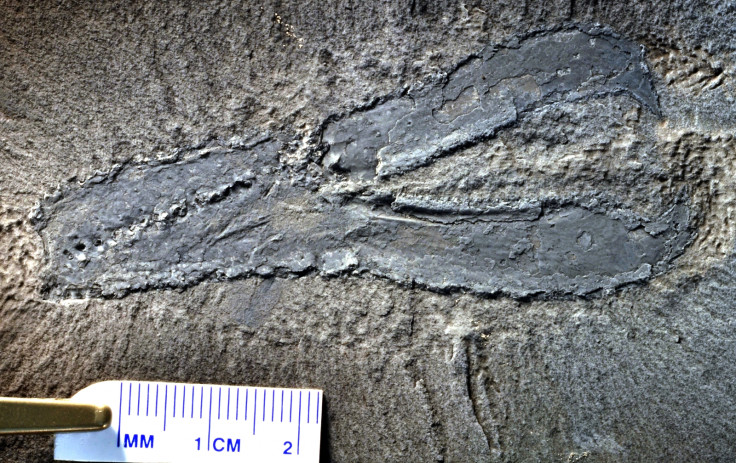180-million-year-old relative of vampire squid unearthed at newly-discovered Jurassic fossil bed
Many of the specimens found at the site are incredibly rare, with soft body parts preserved including bones.
Researchers have stumbled across a treasure trove of fossils from the Early Jurassic period in south-west Alberta, Canada, including a relative of the vampire squid and what could be a new species of lobster.
The site is particularly rare because soft body parts as well as hard shells and skeletons have been preserved in many of the fossils found there, according to the paper published in the journal Geology.
"These fossil jackpots are really special," said study author Rowan Martindale of the University of Texas at Austin in a statement.
There are only three other Early Jurassic marine fossil beds of this nature – so-called Konservat-Lagerstätte sites – where fossils of a wide range of animals are found with both soft and hard tissue preserved. The site, found in Parks Canada's Ya Ha Tinda Ranch near Banff National Park, is the first such fossil field to be found outside Europe.
"In a normal fossil deposit, you only preserve a fraction of the organisms that were alive in the past. When you get an extraordinary fossil deposit with soft tissues preserved, you see significantly more of the community that would have been alive," Martindale said.
"Normally, we wouldn't find many of the animals because they lack a skeleton or have a very soft skeleton."
The researchers think that the site is so rich in fossils because of a mass die-off of animals in the Early Jurassic. Low levels of oxygen in parts of the oceans would have both killed a wide range of species and would have allowed their bodies to be preserved rather than being broken down by organisms that require oxygen. Identifying the cause of the mass death at the site will be the scientists' next step in the research.

The finds at the site include 16 vampyropods, a relative of the vampire squid with its ink sac and fine details of its muscles still preserved in exquisite detail. A lobster fossil found at the site is thought to be a new species, with bulky limbs and scissor-like claws.
The researchers also found dolphin-like mammals called ichthyosaurs, whole fish skeletons with scales and gills intact, bivalves and coprolites, or fossilised droppings.

© Copyright IBTimes 2025. All rights reserved.






















